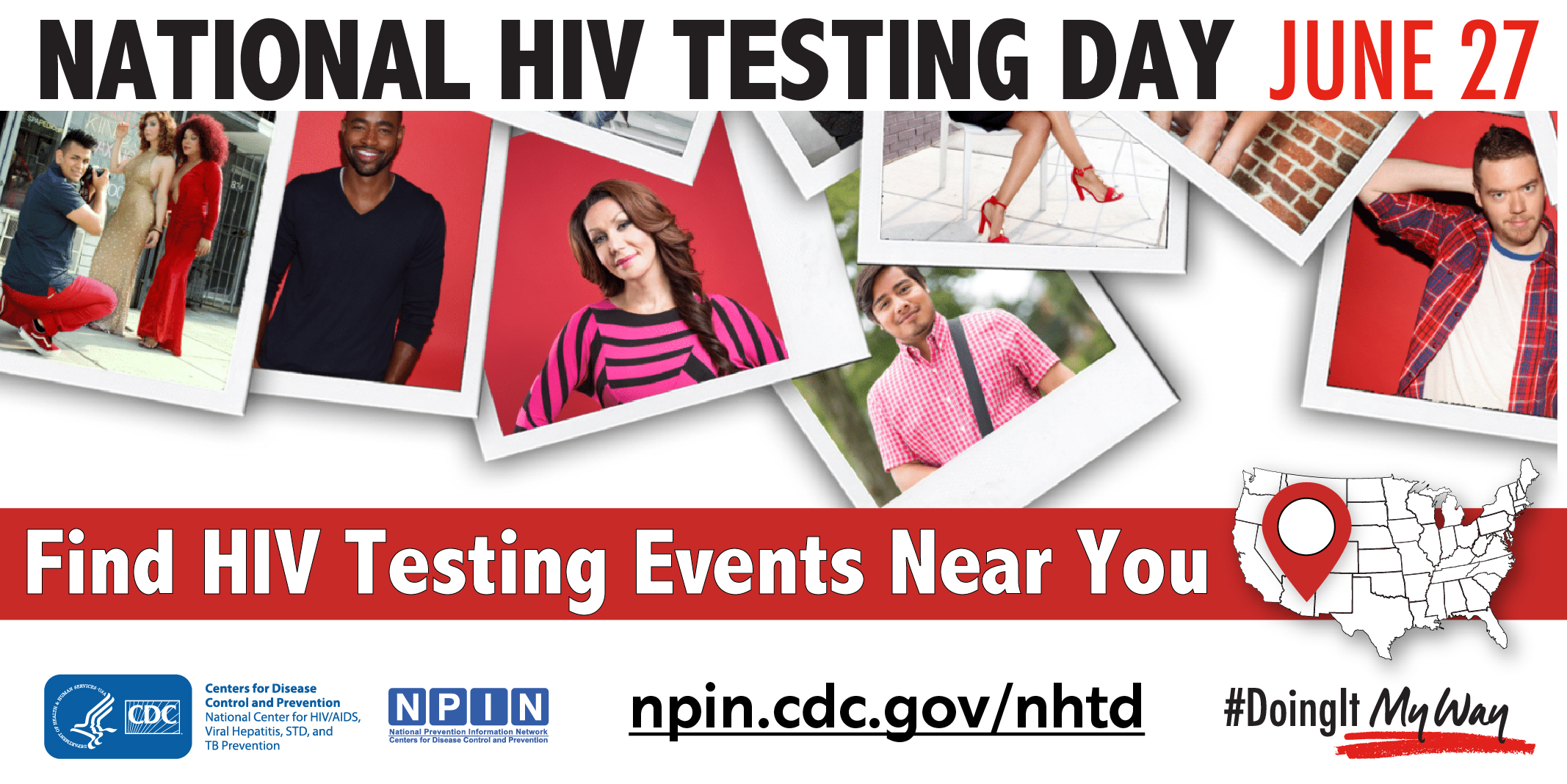CDC National HIV Testing Day Dear Colleague Letter
Topics
Cross-posted from Centers for Disease Control and Prevention

June 27, 2019
Dear Colleague,
Today is National HIV Testing Day (NHTD). We invite you to join the Centers for Disease Control and Prevention (CDC) in encouraging all adults and young people to get tested for HIV and know their status. This year’s theme, Doing It My Way, emphasizes that there are many ways to get an HIV test and calls on everyone to make HIV testing part of their routine health care.
Approximately 1 in 7 people in the United States with HIV do not know they have the virus. In 2016, people who were not aware of their HIV infection accounted for nearly 40% of the estimated 38,700 new HIV transmissions.
HIV testing needs to be more accessible and routinely provided so that everyone with HIV can get a diagnosis as early as possible after infection and start treatment right away. People with HIV who take antiretroviral therapy as prescribed and stay virally suppressed can live long, healthy lives and have effectively no risk of sexually transmitting HIV to partners. For people who do not have HIV but are at risk for getting it, HIV testing can be the bridge to effective prevention tools such as pre-exposure prophylaxis (PrEP), condoms, and other HIV prevention services.
That’s why expanding HIV testing is a critical part of the proposed HHS initiative, Ending the HIV Epidemic: A Plan for America, which seeks to reduce new HIV infections by 75% in 5 years and at least 90% in 10 years. If funded, CDC —as part of its role in Ending the HIV Epidemic — would work with health departments, health care providers, and community-based organizations in the 48 highest-burden counties; Washington, D.C.; San Juan, Puerto Rico; and seven states with a substantial rural HIV burden to begin scaling up efforts to make HIV testing simple, accessible, and truly routine.
Expanding routine and targeted HIV testing is crucial. A study released today indicates that HIV testing is well below where it needs to be in the United States, even in areas with a high burden of HIV and among populations known to be at high risk. Innovative, locally tailored screening strategies are needed to increase HIV testing, and CDC remains committed to collaborating with communities, public health partners, and providers to develop and implement strategies to do just that.
This testing day, please join us in encouraging HIV testing in your community and increased action to end the HIV epidemic. CDC recommends that everyone between the ages of 13 and 64 get tested at least once as part of routine health care. Some people are more at risk for HIV than others and should be tested at least annually. Sexually active gay and bisexual men and transgender persons may benefit from even more frequent testing (e.g., every 3 to 6 months). Comprehensive information about who needs HIV testing and how often they need it is available in CDC’s HIV testing guidelines.
Please help us promote HIV testing events around the country, communicate the importance of testing, and renew the commitment to making testing simple, accessible, and routine. If we work together, we can make sure everyone who needs an HIV test can do it “their way.” Thank you for your contributions and commitment to ending the HIV epidemic.
Sincerely,
/Eugene McCray/
Eugene McCray, MD
Director
Division of HIV/AIDS Prevention
National Center for HIV/AIDS, Viral Hepatitis, STD, and TB Prevention
Centers for Disease Control and Prevention
www.cdc.gov/hiv
/Jonathan Mermin/
Jonathan H. Mermin, MD, MPH
Rear Admiral and Assistant Surgeon General, USPHS
Director
National Center for HIV/AIDS, Viral Hepatitis, STD, and TB Prevention
Centers for Disease Control and Prevention
www.cdc.gov/nchhstp